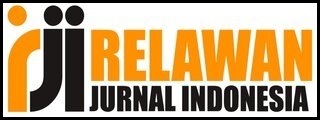The Pattern of Budget Slack in Sharia Microfinance Institutions: A Phenomenology Study
DOI:
https://doi.org/10.58777/rfb.v2i2.211Keywords:
Budgetary slack, religious affiliation, ultra micro, justice, rationalizationAbstract
This study explores budgetary slack in Islamic ultra microfinance institutions, specifically examining the role of religious affiliation. Using a qualitative phenomenological approach, data was collected through interviews at an Islamic Savings and Loans Financing Cooperative. The findings reveal a disparity between theoretical and practical perspectives on budgetary slack. An imbalance between targets and compensation drives actors to rationalize budgetary slack, exacerbated by information asymmetry. Religious affiliation primarily impacts business products and services but has little effect on subordinate behavior. Contrary to assumptions that budgetary slack is unlikely in Sharia-compliant systems, this study suggests that the Sharia institutional environment may still foster budgetary slack due to opportunistic behavior. This research is among the first to examine budgetary slack in Sharia microfinance institutions, highlighting the potential for such behavior even within religiously guided systems.
References
Anita, N., & Rohma, F. F. (2020). Efek Mediasi Slack Detection Dan Keadilan Distributif Terhadap Hubungan Partisipasi Anggaran Dan Senjangan Anggaran. Akuntabilitas, 14(1), 87–102. https://doi.org/10.29259/ja.v14i1.11406
Arifin, A., & Pagalung, G. (2018). Empirical Study of the Effect of Participation of Budget in Managerial Performance. International Journal of Advanced Engineering, Management and Science, 4(9), 645–651. https://doi.org/10.22161/ijaems.4.9.1
Atsala, B. (2017). Behavioural Finance : The Literature Review of Myopic Loss Aversion. International Conference on Education, 162–168.
Belkaoui, A. R. (2002). Behavioral management accounting. United States of America.
Brahmayanti, S., & Sholihin, M. (2006). Asimetri Informasi Dengan Senjangan Anggaran. Jurnal Ekonomi Dan Bisnis Indonesia, 21(2), 175–185.
Chow, C. W., Cooper, J. C., & Waller, W. S. (1988). Participative Budgeting: Effects of a Truth-Inducing Pay Scheme and Information Asymmetry on Slack and Performance. The Accounting Review, 63(1), 111–122. http://www.jstor.org/stable/247682
De Baerdemaeker, J., & Bruggeman, W. (2015). The impact of participation in strategic planning on managers’ creation of budgetary slack: The mediating role of autonomous motivation and affective organisational commitment. Management Accounting Research, 29, 1–12. https://doi.org/10.1016/j.mar.2015.06.002
Dian, P., Kusuma, I., & Sholihin, M. (2016). Penilaian Etis Manager Atas Investasi Berlebihan Pada CSR. Simposium Nasional Akuntansi XIX, 1–30.
Djasuli, M. (2017). Paradigma Interpretif pada Riset Akuntansi (Sebuah Opini: Peneliti Pemula tidak Terjebak dalam Penelitian Minimalis Akuntansi). Pamator, 10(2), 97–106.
Dunk, A. S. (1993). The Effect of Budget Emphasis and Information Asymmetry on the Relation between Budgetary Participation and Slack. The Accounting Review, 68(2), 400–410.
Eslampanah, M., Alvani, S. M., & Tabatabaei, A. (2017). Identify and Rank the Factors Influencing Corruption and Designing Preventive Model Corruption Relying on Islamic Teachings ( Nahj al-Balagha ). Journal of Philosophy, Culture and Religion, 34, 10–20.
Fisher, J. G., Maines, L. A., Peffer, S. A., & Sprinkle, G. B. (2002). Using Budgets for Performance Evaluation: Effects of Resource Allocation and Horizontal Information Asymmetry on Budget Proposals, Budget Slack, and Performance. The Accounting Review, 77(4), 847–865. https://doi.org/10.2308/accr.2002.77.4.847
Gago-Rodríguez, S., & Naranjo-Gil, D. (2016). Effects of trust and distrust on effort and budgetary slack: an experiment. Management Decision, 54(8), 1908–1928. https://doi.org/10.1108/MD-10-2015-0480
Grediani, Evi & Sugiri, S. (2010). Pengaruh Tekanan Ketaatan dan Tanggung Jawab Persepsian pada Penciptaan Budgetary Slack. Simposium Nasional Akuntansi XIII Purwokerto, 1–28.
Hati, L. A. D. (2011). Telaah Literatur tentang Faktor-faktor yang Mempengaruhi Konservatisme Akuntansi. Jurnal Ekonomi & Pendidikan, 8(2), 124–141.
Hayati, N., & Amalia, I. (2021). The effect of religiosity and moderation of morality on fraud prevention in the management of village funds. The Indonesian Accounting Review, 11(1), 105. https://doi.org/10.14414/tiar.v11i1.2297
Huang, C., & Chen, M. (2010). Playing devious games, budget‐emphasis in performance evaluation, and attitudes towards the budgetary process. Management Decision, 48(6), 940–951. https://doi.org/10.1108/00251741011053479
Irfan, M., Santoso, B., & Effendi, L. (2016). Pengaruh Partisipasi Anggaran terhadap Senjangan Anggaran dengan Asimetri Informasi, Penekanan Anggaran dan Komitmen Organisasional sebagai Variabel Pemoderasi. Jurnal Akuntansi Dan Investasi, 17(2), 158–175. https://doi.org/10.18196/jai.2016.0052.158-175
Kahar, S. H. A., Rohman, A., & Chariri, A. (2016). Participative budgeting, budgetary slack and job satisfaction in the public sector. Journal of Applied Business Research, 32(6), 1663–1674. https://doi.org/10.19030/jabr.v32i6.9814
Kung, F., Huang, C., & Cheng, C. (2013). An examination of the relationships among budget emphasis, budget planning models and performance. Management Decision, 51(1), 120–140. https://doi.org/10.1108/00251741311291346
Kusufi, M. S., Rohma, F. F., & Muhammad, E. (2020). Pengaruh Horizon Skema Turnamen dan Frekuensi Publikasi Informasi Relatif terhadap Kinerja Karyawan. Jurnal Kajian Akuntansi, 4(1), 1-12.
Maiga, A. S., & Jacobs, F. A. (2007). The Moderating Effect of Manager’s Ethical Judgment on the Relationship between Budget Participation and Budget Slack. Advances in Accounting, 23, 113–145. https://doi.org/10.1016/S0882-6110(07)23005-6
Merchant, K. A., & Stede, W. A. Van der. (2017). Sistem Pengendalian Manajemen Pengukuran Kinerja, Evaluasi, dan Insentif (3rd ed.). Salemba Empat.
Moleong, L. J. (2013). Metode Penelitian Kualitatif.
Murtin, A., & Septiadi, T. B. (2012). Pengaruh Partisipasi Anggaran dan Kejelasan Sasaran Anggaran Terhadap Budgetary Slack Dengan Informasi Asimetri, Komitmen Organisasi, dan Budget Emphasis Sebagai Pemoderasi. Journal of Accounting and Investment, 12(2), 175–184. https://journal.umy.ac.id/index.php/ai/article/view/682
Nahartyo, E., Rohma, F. F., & Mursita, L. Y. (2020). The mediating effect of overcompensation of rationalisation on instrumental climate and escalation of corruption relationship. Asian Academy of Management Journal, 25(2), 1–21. https://doi.org/10.21315/aamj2020.25.2.1
Nouri, H., & Dunk, A. S. (1998). Nouri Dunk Budget Slack.pdf. Jounal Of Accounting Literature, 17, 72–96.
Onsi, M. (1973). Factor Analysis of Behavioral Variables Affecting Budgetary Slack. American Accounting Association, 48(3), 535–548.
Pundarika, I. G. P., & A.A.N.B, D. (2018). The Effect of Budget Participation on Budgetary Slack with Organizational Commitments and Love of Money as Moderation. International Journal of Science and Research, 8, 2319–7064.
Purnama, I. A. (2015). Pengaruh Skema Kompensasi Denda terhadap Kinerja dengan Risk Preference sebagai Variabel Moderating. Journal Nominal, 4(1), 129–145.
Purnamasari, P., & Amaliah, I. (2015). Fraud Prevention: Relevance to Religiosity and Spirituality in the Workplace. Procedia-Social and Behavioral Sciences, 211, 827–835. https://doi.org/10.1016/j.sbspro.2015.11.109
Rohma, F. F. (2022). Mitigating The Harmful Effect of Slack: Does Locus of Commitment (Organizational Versus Colleague) Play a Role? Int. Journal of Business Science and Applied Management, Volume 17, Issue 3.
Rohma, F. F. (2023). Efektivitas Informasi dan Komunikasi dalam Memitigasi Tendensi Kecurangan Pengadaan Barang dan Jasa. Jurnal Akuntansi dan Keuangan, 12(1), 1-13.
Rohma, F. F., Shofiyah, I., & Junaedi, A. S. (2023). The Effect of Tournament Horizon, Faultline and Group Performance Relationships under Decentralized System. Journal of Indonesian Economy and Business, 38(1), 62-80.
Rohma, F. F., & Chamalinda, K. N. L. (2023). Budgetary slack will not let organization die: explaining motivational and stewardship aspects of conditional slack. Jurnal Ilmiah Akuntansi dan Bisnis, 18(1), 17-28.
Rohma, F. F., Riskiyah, A. A., Irawan, F., Solihah, S., Mustafida, E. F., & Mustafida, F. (2023). Explorational Study of Budgetary Slack Behavior in Sharia Financing Saving and Loan Cooperatives. In Annual International Conference on Islamic Economics and Business (AICIEB) (Vol. 3, pp. 284-289).
Rohma, F. F., & Novitasari, I. (2023). The Moderating Effect of Loyalty on Incentive Schemes and Budgetary Slack Relationship: An Experimental Investigation. The Indonesian Journal of Accounting Research, 26(2), 209-228.
Rohma, F. F., Fatiha, A. T., Arianti, L., & Fadhilah, N. (2023). Whistleblowing Phenomenon: Exploration of Instrumental Climate and Organizational Commitment Aspects. Jurnal Akuntansi, Manajemen dan Ekonomi, 25(4).
Rohma, F. F., & Anita, N. (2024). The Effect of Prepayment Contract Frames and Feedback on Budgetary Slack: An Experimental Investigation. Journal of Indonesian Economy and Business, 39(1), 73-92.
Rohma, F. F. (2023). Does a green economy mentality exist? An experimental study in emerging country. Asian Journal of Business Ethics, 12(2), 285-304.
Said, J., Alam, M. M., Karim, Z. A., & Johari, R. J. (2018). Integrating religiosity into fraud triangle theory: findings on Malaysian police officers. Journal of Criminological Research, Policy and Practice, 4(2), 111–123. https://doi.org/10.1108/JCRPP-09-2017-0027
Sari, S. P., & Safitri, L. A. (2019). Tinjauan Tentang Manajemen Laba Dengan Fraud Triangle Theory Pada Perusahaan LQ45 Di Bursa Efek Indonesia. Jurnal Manajemen Dan Bisnis, 15(2), 19–33.
Stevens, D. E. (2002). The Effects of Reputation and Ethics on Budgetary Slack. Journal of Management Accounting Research, 14(1), 153–171. https://doi.org/10.2308/jmar.2002.14.1.153
Suhendi, C., Rohman, A., & Purwanto, A. (2020). Corruption Prevention Based on e-Government with Islamic Religiosity as a Moderating Variable. Asia-Pacific Management Accounting Journal, 15(1), 133–150. https://doi.org/10.24191/apmaj.v15i1-07
Watts, R. L. (2003). Conservatism in Accounting Part I: Explanations and Implications. Accounting Horizons, 17(3), 207–221. https://doi.org/10.2308/acch.2003.17.3.207
Widanaputra, A. A., & Mimba, N. P. S. H. (2014). The Influence of Participative Budgeting on Budgetary Slack in Composing Local Governments’ Budget in Bali Province. Procedia - Social and Behavioral Sciences, 164, 391–396. https://doi.org/10.1016/j.sbspro.2014.11.093
Yin, R. K. (2012). Case study methods. In APA handbook of research methods in psychology, Vol 2: Research designs: Quantitative, qualitative, neuropsychological, and biological. (pp. 141–155). American Psychological Association. https://doi.org/10.1037/13620-009
Young, S. M. (1985). Participative Budgeting: The Effects of Risk Aversion and Asymmetric Information on Budgetary Slack. Journal of Accounting Research, 23(2), 829–842. https://doi.org/10.2307/2490840
Yustina, A. I., & Gudono, G. (2017). Halo Effect in Subjective Performance Evaluation Bias. Journal of Economics, Business & Accountancy Ventura, 19(3), 393–404. https://doi.org/10.14414/jebav.v19i3.621
Downloads
Published
How to Cite
Issue
Section
Copyright (c) 2024 Solihah Solihah, Frida Fanani Rohma

This work is licensed under a CC Attribution-ShareAlike 4.0
 Views: 147
|
Views: 147
|
 Downloaded: 133
Downloaded: 133










